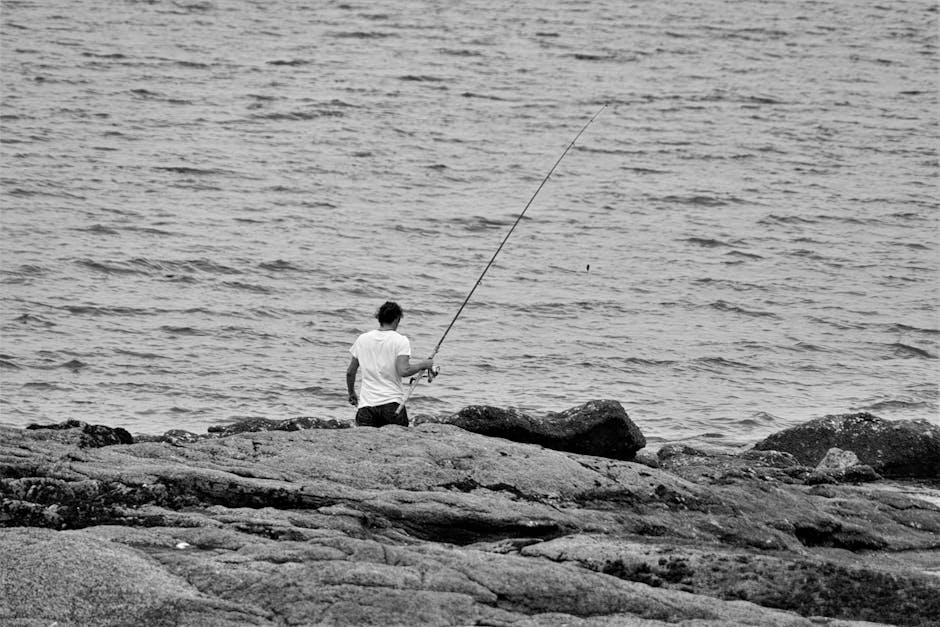The relationship between humankind and the marine environment is not a novel one. Evidence suggests that human influence on the ocean has been persistent and evolving, with profound consequences for marine ecosystems and biodiversity. This article delves into the historical trajectory of human impacts on the ocean, from rudimentary coastal interactions to the complex, often detrimental, global scale influences of today.
Early human interactions with the ocean revolved primarily around sustenance and coastal resource exploitation. Primitive societies, for example, utilized marine life for food, tools, and shelter. Fishing practices in these eras were largely localized and often sustainable, at least within the confines of a specific coastal region. Yet, even these early forms of interaction held the seeds of future problems. Overexploitation of local resources, such as shellfish beds, could lead to temporary but potentially serious ecological imbalances. Furthermore, the accumulation of waste and refuse along shorelines though rudimentary by modern standards demonstrably altered the immediate coastal environment. Archaeological evidence reveals periods of both intensive and extensive use of marine resources, suggesting that the capacity for modifying the ocean’s dynamics was emerging quite early.
The development of more advanced sailing technologies and maritime trade routes marked a significant shift. Increased transportation and travel across the globe facilitated the movement of both people and goods, but it also introduced new avenues for both intentional and unintentional impacts. The introduction of invasive species through ballast water, while potentially an unintended consequence, had severe impacts on native populations. The transport of biological materials, in both living and non-living states, has undoubtedly altered ecosystems over time. The historical presence of foreign species in new habitats, ultimately driven by trade and travel, illustrates a pivotal turning point in the development of human impact on the ocean.
Exploration and colonialism further intensified human interaction with the ocean. These expansions brought about widespread resource extraction, such as whaling, which at times approached unsustainable levels. Whaling practices, for example, reveal a dramatic impact on specific species populations, with historical data painting a stark picture of overharvesting. Moreover, the expansion into new territories and ocean regions often brought about the unintentional or intentional introduction of non-native species.
The industrial revolution represented a watershed moment, dramatically accelerating the pace of human impact. The rise of industrial fishing, with its powerful trawlers and large-scale netting techniques, significantly altered marine ecosystems. Industrial fishing practices decimated fish stocks in numerous regions, demonstrating a drastic departure from earlier, more localized practices. The increase in pollution, initially localized but subsequently escalating globally, began to affect marine life and water quality in complex and often irreversible ways.
The 20th and 21st centuries showcase the increasingly complex and widespread nature of human impacts on the ocean. Climate change, driven largely by human activities, is arguably the most profound current threat. Rising water temperatures, ocean acidification, and changing currents cause significant disruptions in marine ecosystems. Plastic pollution has emerged as a particularly insidious problem, permeating the entire marine food web, from microscopic organisms to large marine mammals. Furthermore, the increasing demand for marine resources, combined with intensive agricultural practices, has led to widespread nutrient runoff and eutrophication of coastal waters. These complex interactions, with often delayed and cascading consequences, have demonstrably changed the character of oceanic ecosystems and their associated biodiversity.
Current research underscores the interconnected nature of human impacts on the ocean. Scientists are increasingly recognizing the cumulative effect of various pressures, including overfishing, pollution, habitat destruction, and climate change. The impact on one aspect of the marine environment can have consequences throughout the entire food web. For instance, changes in fish populations can affect the predators and prey species that rely on them, leading to alterations in the entire trophic structure. Moreover, the interplay between human activities on land and those in the ocean is increasingly critical. Land-based pollution, like agricultural runoff and sewage, can have significant impacts on coastal waters, emphasizing the importance of integrated management strategies.
The question of whether humans have always impacted the ocean necessitates a careful consideration of the scale and complexity of these impacts. While primitive interactions might have been localized and potentially sustainable, the cumulative effects of human activity over millennia have become profound and pervasive. The industrial era has brought with it an unprecedented level of disruption to marine ecosystems, often exceeding the capacity for natural recovery.
Looking ahead, the future of the ocean hinges on a global commitment to sustainable practices. This necessitates shifts in fishing strategies, the development of innovative technologies for pollution mitigation, and the implementation of effective policies that prioritize the long-term health of marine ecosystems. By recognizing the profound historical impacts of human activity on the ocean, and actively mitigating future threats, we can work towards a more sustainable and harmonious relationship between humanity and the vast marine world. This will be fundamental in maintaining biodiversity and the crucial ecosystem services that the ocean provides for the planet as a whole.
